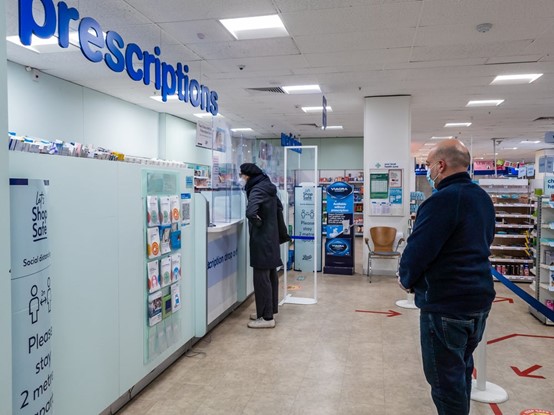Antidepressant prescriptions continue to steadily grow in England
July 9, 2023
Source: drugdu
 468
468

The number of antidepressant drugs being prescribed on the UK’s National Health Service (NHS) rose again, according to a quarterly report by the NHS Business Services Authority (NHSBSA).
The report, which covers the months from October 2022 to December 2022, lists the number of mental health medicines prescribed in England according to the five British National Formulary (BNF) drug groups. This includes drugs that could have been dispensed in England, Scotland, Wales, Isle of Man of the Channel Islands.
The British National Formulary classifies mental health medications into different groups based on their use. They are antidepressants, hypnotics and anxiolytics, central nervous system (CNS) stimulants and attention-deficit/hyperactivity disorder (ADHD) drugs, dementia medication, and antipsychotics.
In the Q3 2022-2023, period antidepressant drugs were the most prescribed drug class, totalling nearly 22 million items, a 2.67% increase compared to the same period in the previous year. The rise is part of an overall longer-term trend of an increase in antidepressant prescriptions, with their use now up 25% compared to the 2017-18 period.
The biggest percentage change in mental health medications in the last five years has been with prescriptions for CNS stimulants and ADHD drugs, in line with a gradual upward trend. Since the Q3 2017-18 period, there has been nearly a 70% increase in prescribed items in that drug class.
Dementia medication and antipsychotic prescriptions have also increased. The only downward trend in prescribing habits was seen in drugs classified as hypnotics and anxiolytics.
Mental health is a key focus of the NHS Long Term Plan, which involves an increase of funding for the sector to £2.3bn ($2.9m) per year. In addition, in January 2023, the UK government announced a further £150m ($191m) to help build mental healthcare facilities.
Amidst rising use of antidepressants and high-strength painkillers in general, the NHS issued guidance to general practitioners (GPs) to explore alternative treatments. With the aim of reducing patient reliance on such medication, GPs have been encouraged to follow a more personalised treatment plan for patients. Whilst opioid prescriptions have dropped by nearly half a million, antidepressant use is still climbing.
Reference:https://www.pharmaceutical-technology.com/news/antidepressant-prescriptions-continue-to-steadily-grow-in-england/
Read more on
- The first subject has been dosed in the Phase I clinical trial of Yuandong Bio’s EP-0210 monoclonal antibody injection. February 10, 2026
- Clinical trial of recombinant herpes zoster ZFA01 adjuvant vaccine (CHO cells) approved February 10, 2026
- Heyu Pharmaceuticals’ FGFR4 inhibitor ipagoglottinib has received Fast Track designation from the FDA for the treatment of advanced HCC patients with FGF19 overexpression who have been treated with ICIs and mTKIs. February 10, 2026
- Sanofi’s “Rilzabrutinib” has been recognized as a Breakthrough Therapy in the United States and an Orphan Drug in Japan, and has applied for marketing approval in China. February 10, 2026
- Domestically developed blockbuster ADC approved for new indication February 10, 2026
your submission has already been received.
OK
Subscribe
Please enter a valid Email address!
Submit
The most relevant industry news & insight will be sent to you every two weeks.



